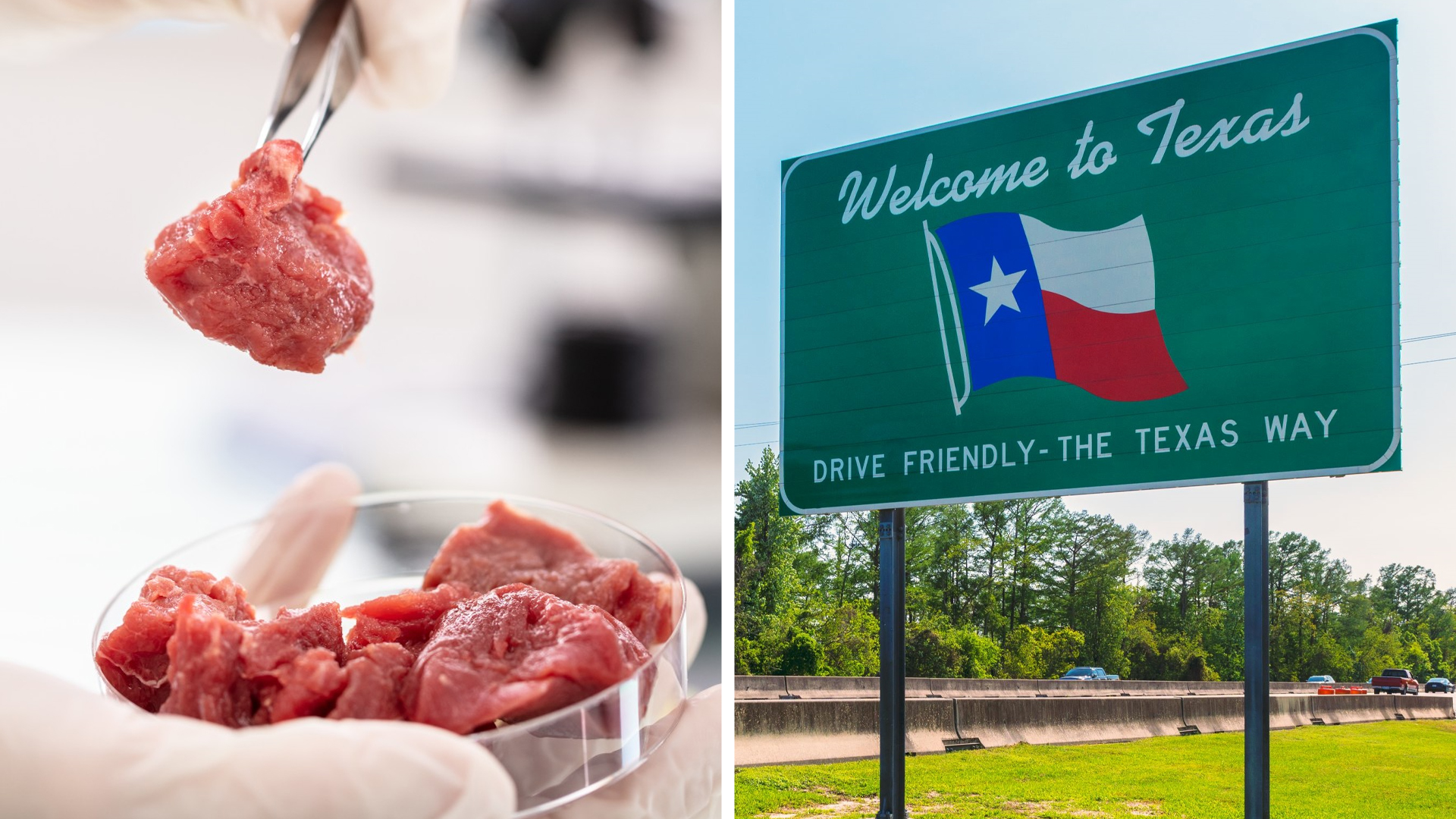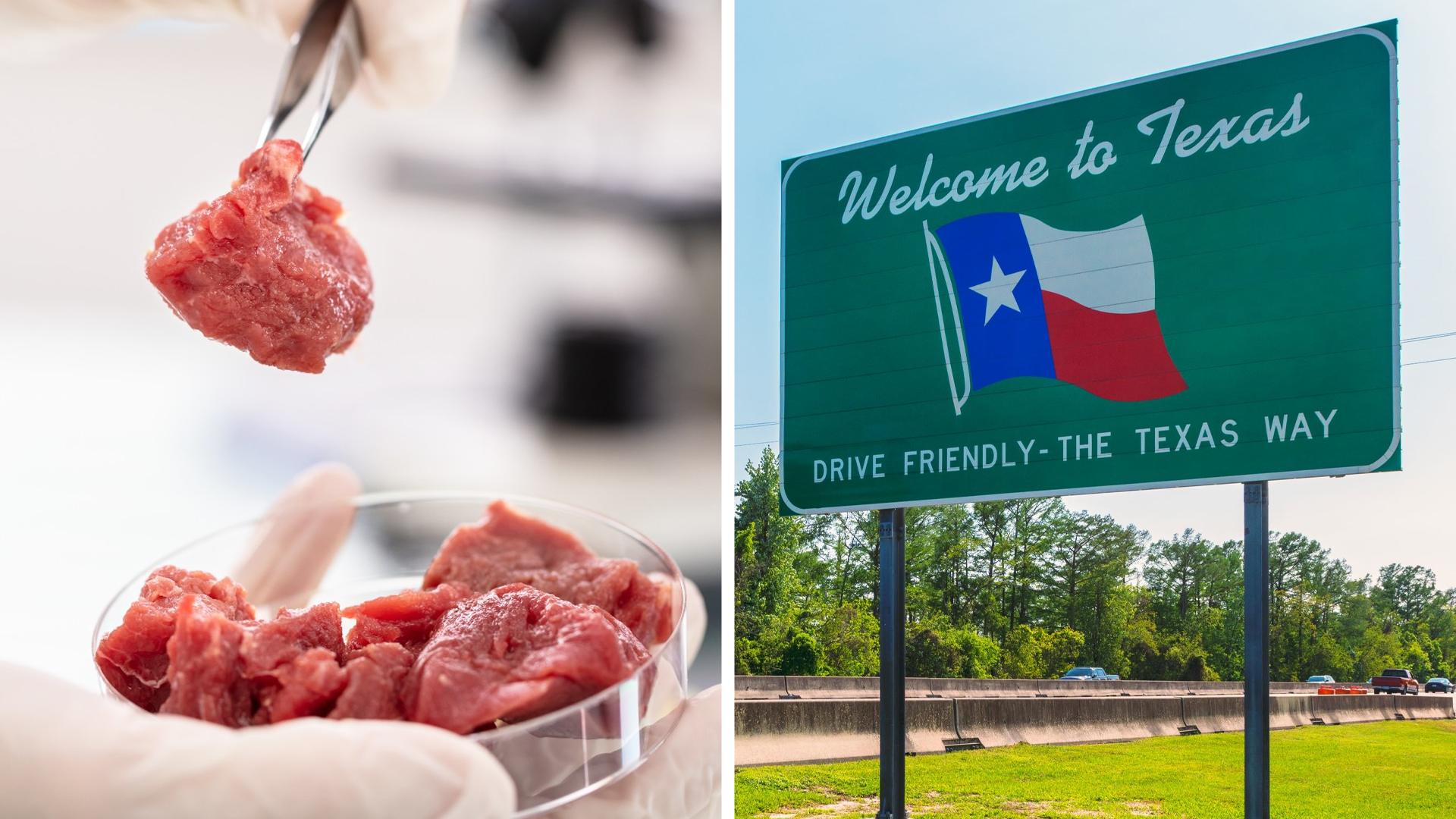
Governor Greg Abbott signed the “Texas Pure Meat Act” into law this week, declaring that “meat should come from a cow, a pig, or something that bleeds when you shoot it,” effectively putting the kibosh on what some consider the future of food. In his public statement, Abbott did not mince words: “We don’t want our food to be printed like a paper document. Texans want real meat, not some sci-fi experiment that tastes like a Xerox machine.”
While the rest of the world edges toward lab-grown meat as a solution to environmental concerns and animal welfare, Texas has decided that printed food is a bridge too far. The term “printed meat” has become the rallying cry for opponents of the technology, conjuring up images of 3D printers spitting out steaks like office memos.
“We don’t eat paper, so why would we eat something that’s printed?” asked State Representative Buck Thompson, the author of the bill. “If I can’t find the ribcage, I’m not eating it.”
Thompson, who made headlines last year for suggesting cows should be celebrated with their own national holiday, claims that lab-grown meat is not only unnatural but un-Texan. “Meat comes from the earth. Well, it comes from animals on the earth. You can’t just whip it up in a lab and call it beef. What’s next, vegan brisket?”
Supporters of the ban have taken to social media, where hashtags like #NoToPrintedMeat and #RealMeatOrBust are trending. One rancher from Amarillo summed up the sentiment with a viral post that read, “If it didn’t moo, it ain’t for you.”
Texas cattle ranchers, who have long been the backbone of the state’s identity, are applauding the ban. “This is a win for ranchers and meat lovers everywhere,” said Jim Bob Carter, president of the Texas Beef Association. “Lab-grown meat? I don’t even know what that is. It sounds like something you’d feed a robot, not a Texan.”
Carter’s ranch, which has been in his family for six generations, prides itself on producing “God’s chosen beef.” “We’re not gonna stand by and let some lab-coat-wearing scientist replace our cows with a Petri dish,” he said during an interview, chewing on a piece of jerky that looked like it had been aged since the Civil War.
Ranchers across the state have echoed Carter’s sentiment, with many organizing “Beef-Only BBQs” in protest of what they see as an assault on their livelihood. “If you can’t chase it down, how do you even know it’s real?” one attendee remarked while flipping a rack of ribs large enough to double as a weapon in a zombie apocalypse.
In addition to cultural concerns, opponents of lab-grown meat have raised numerous health and safety issues—some of which, admittedly, make little sense.
During a state senate hearing, one lawmaker suggested that lab-grown meat might be dangerous if it clogs up printers. “If you’re printing a burger and the nozzle gets blocked, what happens then? Do you get a half-printed burger? What if it jams?” asked Senator Dale Riley with complete sincerity, apparently misunderstanding the entire concept of lab-grown food. “You don’t see a cow malfunction halfway through milking.”
The hearing quickly devolved into a surreal series of hypothetical situations, with one senator even proposing that lab-grown meat could lead to hackers taking control of the food supply. “What’s to stop someone from hacking into our meat printers and changing the flavor to something un-American, like tofu?” asked another legislator, sending shivers through the room.
Predictably, tech companies and scientific organizations invested in lab-grown meat were not pleased by Texas’s decision. A spokesperson for “Big Lab Meat” (as opponents have started calling the burgeoning industry) issued a statement decrying the ban as “a rejection of science and sustainability.”
“We’re trying to create a future where we can feed the world without destroying the planet,” said Dr. Linda Foster, CEO of Meatro, a leading producer of lab-grown beef. “But sure, let’s just stick with killing cows and belching methane into the atmosphere because that’s ‘more natural.’”
Tech industry leaders also weighed in, with Elon Musk tweeting, “It’s not printed meat, it’s cultured. Big difference. Texas needs to update their software.” Musk followed up with a meme of a 3D printer ejecting a steak onto a plate, captioned: “Cow.exe has stopped working.”
Despite the backlash from the scientific community, Texas officials remain firm in their stance. “Let the tech billionaires have their ‘cultured’ meat,” said one state representative, “but as long as we’re in Texas, we’ll be eating meat the way God intended—by slaughtering a cow, cooking it on a grill, and devouring it like champions.”
On the streets of Texas, the ban has been largely well-received. “I wasn’t sure about this lab-grown stuff from the beginning,” said Bobby Jenkins, a BBQ enthusiast from Houston. “The only thing I want coming out of a lab is medicine—not my dinner.”
Meanwhile, Texas BBQ joints have been quick to jump on the bandwagon, with many offering specials like “Real Meat Only” platters and t-shirts with slogans like “Keep It Real, Keep It Beef.” Some restaurants have even started branding themselves as “Lab-Free Zones.”
“I know one thing,” said Carl, a pitmaster in Austin. “If someone tries to sell me a lab-grown brisket, they’d better be ready to catch these hands. In Texas, we don’t mess with meat, and we definitely don’t print it.”
While Texas has made its stance on lab-grown meat clear, other states are taking a more cautious approach, with some viewing lab-grown meat as a solution to the environmental crisis and food shortages. California, for example, has embraced the trend, with lab-grown burgers popping up in trendy vegan restaurants and Silicon Valley startups touting their products as the “future of meat.”
For now, Texas remains steadfast in its belief that meat should come from the land and not from a lab. As Governor Abbott put it, “In Texas, we don’t print our food. We raise it, hunt it, and grill it.”
Whether this ban will stand the test of time remains to be seen, but one thing is certain: if you’re looking for a printed steak, you won’t be finding it in Texas anytime soon.


